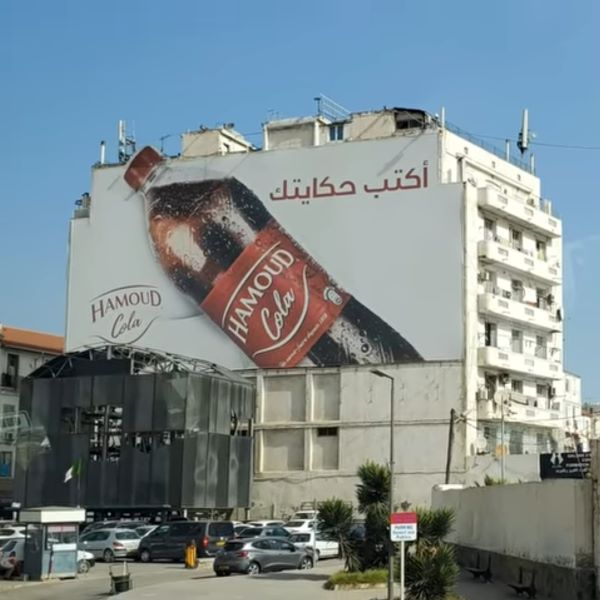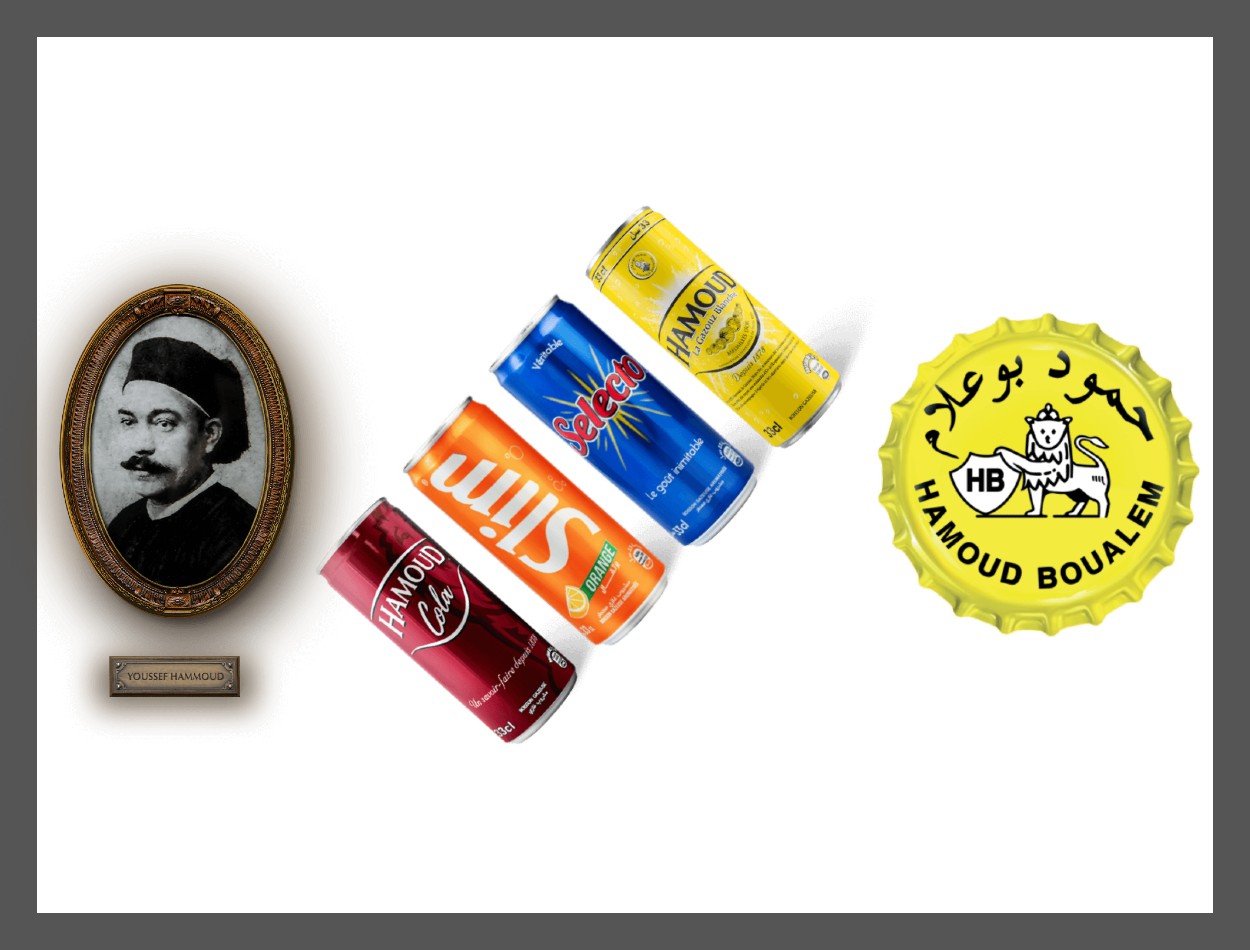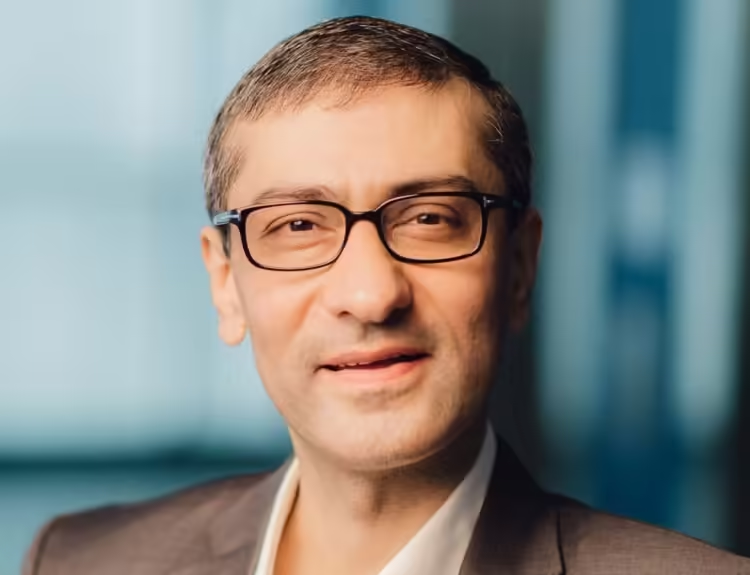American multinationals Coca-Cola and PepsiCo are the dominant providers of carbonated soft drinks in most African markets.
However, one man’s initiative has endeavored to sustain a different story in Algeria.
Technically the oldest Algerian company still in operation, the Hamoud Boualem Group has survived colonial rule, the independence war, nationalization, bankruptcy, the Algerian civil war, and two world wars to stand strong as the country’s cultural icon against global capitalism.
Youssef Hamoud’s humble beginnings
Youssef Hamoud was born in 1830s French-ruled Algeria, at a time when the French had turned tens of thousands of hectares of Algerian soil into citrus tree farms.
From 1948, Youssef worked as a laborer in one of the French-owned factories that produced citrus-based drinks in Algeria.
He would quit in 1951 to start a small manual-based citrus juice operation in Algiers.
In time, Youssef developed his own recipe that involved mixing rations of citrus, orange, and mandarin extracts which became very popular in his community.
Nonetheless, he faced capacity challenges given that with manual processes, he could only produce so much juice, consistently falling short of everyday demands.
To gain the necessary exposure in industrial juice manufacturing, Youssef relocated to Marseille, France where he secured employment at a large carbonated drinks manufacturing factory.
La Royale
This move would turn out to be the masterstroke that set him on a path to regional success.
1878, he would return to Algeria with the necessary equipment, and technical know-how, form a new company, and launch an improved recipe for a lemonade drink, christened ‘La Royale’.
So popular was La Royale that by 1883, the drink, manufactured out of a facility in the district of Belcourt (now Belouizdad) in Algiers, was being exported to Morocco, Tunisia, and Egypt.
In 1889, La Royale participated in the Universal Exposition in Paris.
The 1889 Universal Exposition was a highly successful international exhibition and one of the few world fairs at the time to turn a profit.
While the exposition’s main attraction was the Eiffel Tower, a 300-meter-high marvel of iron by Gustave Eiffel, Youssef Hamoud’s drink La Royale would come out as the best soft drink in the world winning 20 gold medals in different soft drink categories.
Growth
Youssef Hamoud would in 1907 diversify into a second flavor, La Victoria which was equally well received by the Algerian market.
To satisfy growing demand, Youssef’s grandson, Boulem Hammoud secured financing in 1920 and built a new facility, moving the company to its current headquarters in Hassiba Ben Bouali Street.
He also renamed the company Hamoud Boulem & Co.


The signature La Royale would in the coming years be renamed Hamoud while La Victoria is now Selecto.
The 1950s would see the company introduce yet another brand of soft drink called Slim.
The 1990s to date have seen the company grow in leaps and bounds to maintain a dominant presence in Algeria’s soft drink market.
The Hamoud Boualem Group now runs three ultra-modern production units that produce six product lines of soft drinks packaged in either glass, PET, or can formats.
In 2020, Hamoud Bouelem introduced Hamoud Cola, to compete with Coca-Cola’s brand Coke which dominates the cola segment of soft drinks in Algeria.
Challenges
Over the years, the Hamoud Bouelem Group has faced serious incidences that threatened to wipe it out of the Algerian business landscape:
In 1940, the French colonial authorities imposed punitive taxes on the company before nationalizing it and imposing a French partner as the majority shareholder.
The Algerian market opened to soft drink giant, Coca-cola effectively slashing Hamoud Bouelem’s market share.
The company would eventually go bankrupt in 1947, surrendering ownership to a consortium of French banks it owed money.
While in 1951, Hamoud’s family partnered with their cousins the Hafiz family to acquire back 70% of the company, Youssef Hammoud was sent to prison in 1956 while his partner, Dahmane Hafiz, fled to Morocco accused of supporting the Algerian revolution.
After independence, the family would be spared the widespread nationalization of Algerian companies but restrictive business policies of the socialist regime meant that the company operated at a paltry level just to keep the door open in the 1960s through to the 1980s.
Come 2011, the US Food and Drugs Administration (FDA) refused to authorize the commercialization of Hamoud Boualem products in the US.
While it cited the presence of dangerous additives and misleading labeling as reasons for rejection, many Algerian immigrants believed the influence of America’s soft drink giants had something to do with it.
Algeria’s cultural icon
The Algerian music and pop culture is full of references to Hamoud Bouelem’s story of resilience.
Its soft drink brands; Hamoud La Blanche, Hamoud Cola, Selecto, Slim and Hamoud Sirop command almost 50 percent of the Algerian soft drinks market, well ahead of Coca-Cola and PepsiCo.
The soft drinks, being very popular among Algerian immigrants are exported to Europe, Canada, and the Middle East.
From humble beginnings 1878, the firm has expanded its operations to 5 countries with six product lines coming from three large production units. In total, the manufacturer employs about 700 employees, produces 16 products, and has enlisted 55 distributors globally.
While most of its data is private, Boulem Hammoud’s is estimated to earn annual revenue upwards of $10.2million.






